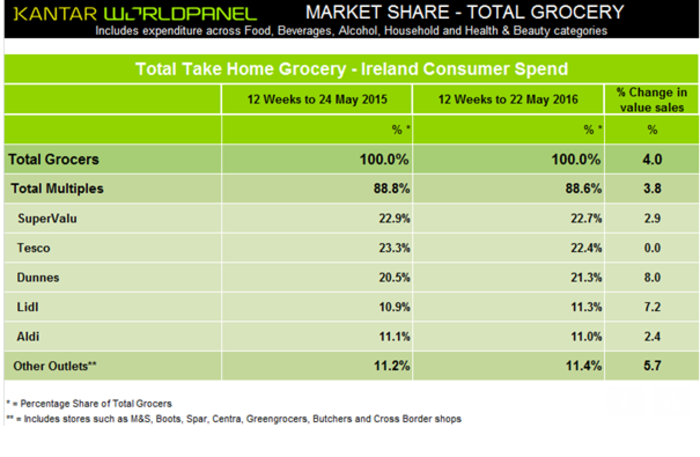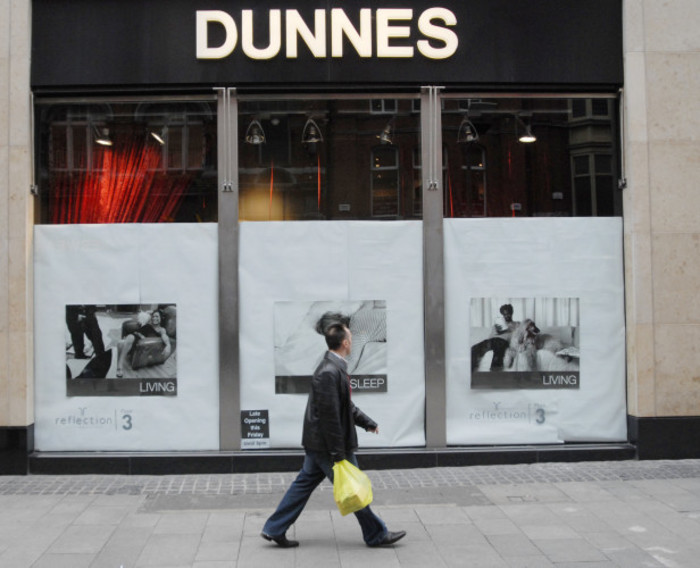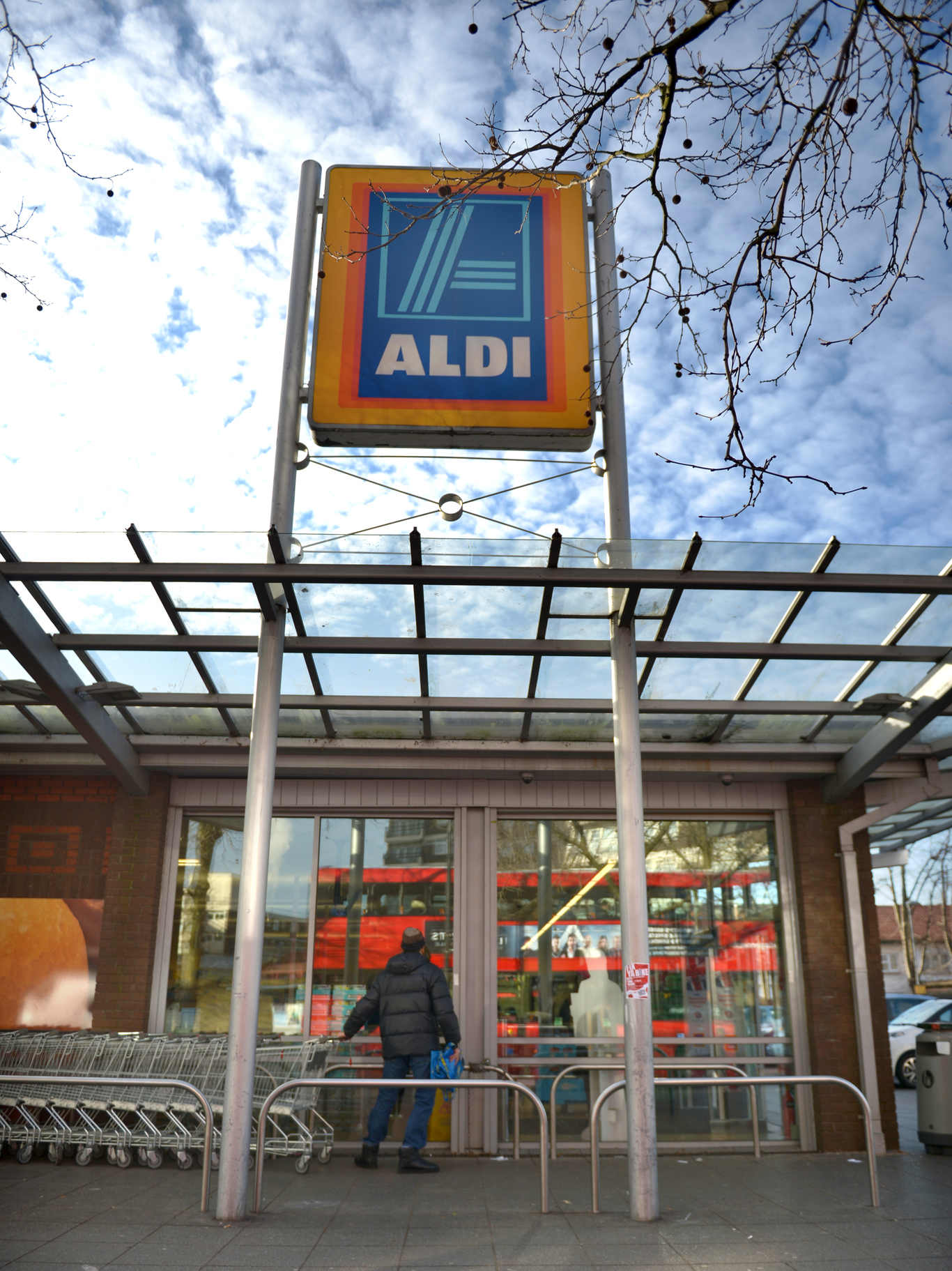Aldi has started dropping market share as sales surge at Dunnes
It’s one of the first declines for the German chain since it began aggressively targeting the Irish trade.
GERMAN DISCOUNTER ALDI has suffered one of its first drops in market share since it started making rapid inroads into the Irish grocery sector.
The chain had a slight gain in overall sales in the three months to the end of May, but larger increases at all of its competitors – bar former market leader Tesco – meant it still lost ground as a proportion of the total that customers spent.
The drop came despite its German rival, Lidl, reporting a strong increase in sales, according to the latest figures from Kantar Worldpanel Ireland.
The survey of 5,000 households also showed SuperValu held onto its position as market leader ahead of rival Tesco, which has seen its performance stabilise in recent months after a difficult 2015 in which sales slid and its parent company weathered a scandal over the misreporting of its profits.
Irish chain Dunnes was the best performer during the period. Its market share rose by almost a full percentage point compared to the same period last year as sales surged by 8%.
Lidl reported strong growth, with sales rising by 7.2% on a value basis, while SuperValu’s take rose by just under 3%.

Kantar Worldpanel director David Berry told Fora that the tiny decline in Aldi’s share may be because the chain, along with rival Lidl, is more established in the Irish market and does not have as much room to grow as it once did.
“There is some of a levelling out, they have performed strongly and have a bigger chunk of the market now so it is tough to maintain that growth that we had been seeing,” he said.
“They would have plans to keep growing and I think that new stores will play a role in that. Both Lidl and Aldi have ambitious plans and it comes down to how the competition responds to that.”
In March, Aldi revealed it was expanding its premium ‘specially selected’ range in a bid to appeal to shoppers craving more upmarket products.
Dunnes growth
Dunnes had the strongest growth during the period, despite having to deal with a widely publicised strike earlier in the year. The industrial action does not appear to have had a long term impact on sales as its growth in market share was the most recorded by any supermarket.

Independent outlets and chains with a smaller presence in Ireland, like Marks & Spencer, also had a good three months. Sales at those in the grouping were up 5.7% for the period, while they also grew their market share.
Berry said that people are visiting supermarkets more often, averaging an extra four trips during the latest 12 weeks compared to the same period in 2015.
“Coupled with increased prices this means that the average household is spending an additional €50 on groceries this year, amounting to an extra €89 million for the market,” he said.
“The market has been growing strongly for months and that looks like it will continue. If you look at other countries, growth in Ireland is pretty high (and) it might show that maybe price isn’t everything at the moment – and that people may be convinced to spend more when they are convinced of the worth of it.”
Regarding the performance of Dunnes, Berry said it was likely due to several factors including some of the store’s special offers and discounts for customers who do more shopping there.






